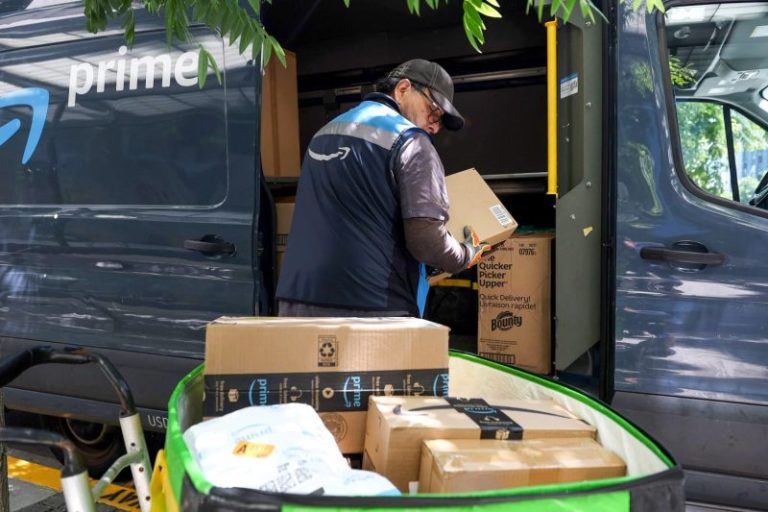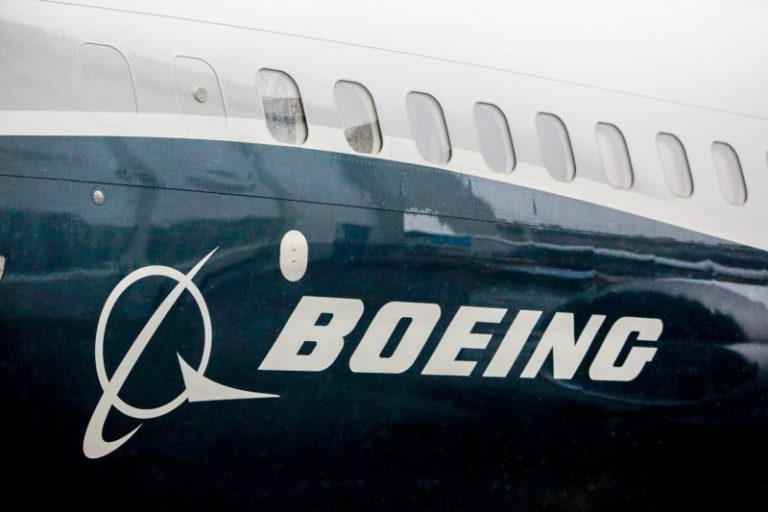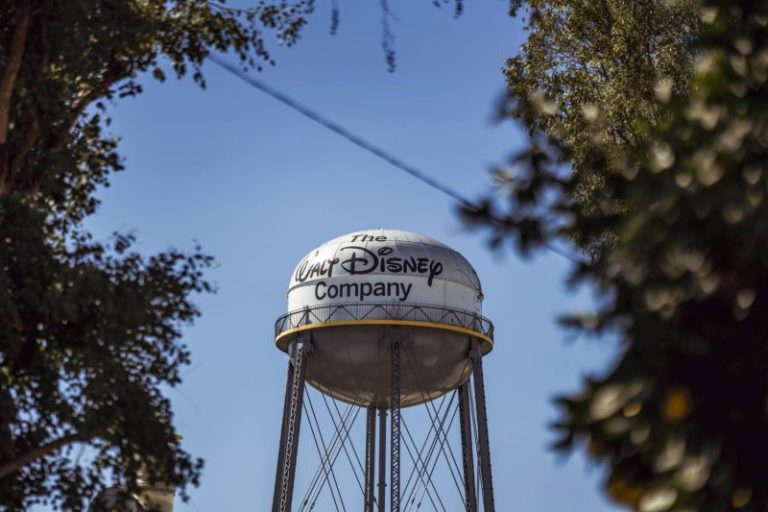Families who lost loved ones in two crashes of Boeing 737 Max jetliners may get their last chance to demand the company face criminal prosecution Wednesday. That’s when a federal judge in Texas is set to hear arguments on a U.S. government motion to dismiss a felony charge against Boeing.
U.S. prosecutors charged Boeing with conspiracy to commit fraud in connection with the crashes that killed 346 people off the coast of Indonesia and in Ethiopia. Federal prosecutors alleged Boeing deceived government regulators about a flight-control system that was later implicated in the fatal flights, which took place less than five months apart in 2018 and 2019.
Boeing decided to plead guilty instead of going to trial, but U.S. District Chief Judge Reed O’Connor rejected the aircraft maker’s plea agreement in December. O’Connor, who also will consider whether to let prosecutors dismiss the conspiracy charge, objected to diversity, equity and inclusion policies potentially influencing the selection of an independent monitor to oversee the company’s promised reforms.
Lawyers representing relatives of some of the passengers who died cheered O’Connor’s decision, hoping it would further their goal of seeing former Boeing executives prosecuted during a public trial and more severe financial punishment for the company. Instead, the delay worked to Boeing’s favor.
The judge’s refusal to accept the agreement meant the company was free to challenge the Justice Department’s rationale for charging Boeing as a corporation. It also meant prosecutors would have to secure a new deal for a guilty plea.
The government and Boeing spent six months renegotiating their plea deal. During that time, President Donald Trump returned to office and ordered an end to the diversity initiatives that gave O’Connor pause.
By the time the Justice Department’s criminal fraud section briefed the judge in late May, the charge and the plea were off the table. A non-prosecution agreement the two sides struck said the government would dismiss the charge in exchange for Boeing paying or investing another $1.1 billion in fines, compensation for the crash victims’ families, and internal safety and quality measures.
The Justice Department said it offered Boeing those terms in light of “significant changes” Boeing made to its quality control and anti-fraud programs since entering into the July 2024 plea deal.
The department also said it thought that persuading a jury to punish the company with a criminal conviction would be risky, while the revised agreement ensures “meaningful accountability, delivers substantial and immediate public benefits, and brings finality to a difficult and complex case whose outcome would otherwise be uncertain.”
Judge O’Connor has invited some of the families to address the court on Wednesday. One of the people who plans to speak is Catherine Berthet, whose daughter, Camille Geoffrey, died at age 28 when a 737 Max crashed shortly after takeoff from Ethiopia’s Addis Ababa Bole International Airport.
Berthet, who lives in France, is part of a group of about 30 families who want the judge to deny the government’s request and to appoint a special prosecutor to take over the case.
“While it is no surprise that Boeing is trying to buy everyone off, the fact that the DOJ, which had a guilty plea in its hands last year, has now decided not to prosecute Boeing regardless of the judge’s decision is a denial of justice, a total disregard for the victims and, above all, a disregard for the judge,” she said in a statement.
Justice Department lawyers maintain the families of 110 crash victims either support a pre-trial resolution or do not oppose the non-prosecution agreement. The department’s lawyers also dispute whether O’Connor has authority to deny the motion without finding prosecutors acted in bad faith instead of the public interest.
While federal judges typically defer to the discretion of prosecutors in such situations, court approval is not automatic.
In the Boeing case, the Justice Department has asked to preserve the option of refiling the conspiracy charge if the company does not hold up its end of the deal over the next two years.
Boeing reached a settlement in 2021 that protected it from criminal prosecution, but the Justice Department determined last year that the company had violated the agreement and revived the charge.
The case revolves around a new software system Boeing developed for the Max. In the 2018 and 2019 crashes, the software pitched the nose of the plane down repeatedly based on faulty readings from a single sensor, and pilots flying then-new planes for Lion Air and Ethiopian Airlines were unable to regain control.
The Transportation Department’s inspector general found that Boeing did not inform key Federal Aviation Administration personnel about changes it made to the MCAS software before regulators set pilot training requirements for the Max and certified the airliner for flight.
Acting on the incomplete information, the FAA approved minimal, computer-based training for Boeing 737 pilots, avoiding the need for flight simulators that would have made it more expensive for airlines to adopt the latest version of the jetliner.
Airlines began flying the Max in 2017. After the Ethiopia crash, the planes were grounded worldwide for 20 months while the company redesigned the software.
In the final weeks of Trump’s first term, the Justice Department charged Boeing with conspiring to defraud the U.S. government but agreed to defer prosecution and drop the charge after three years if the company paid a $2.5 billion settlement and strengthened its ethics and legal compliance programs.
The 2021 settlement agreement was on the verge of expiring when a panel covering an unused emergency exit blew off a 737 Max during an Alaska Airlines flight over Oregon at the beginning of last year. No one was seriously injured, but the potential disaster put Boeing’s safety record under renewed scrutiny.
A former Boeing test pilot remains the only individual charged with a crime in connection with the crashes. In March 2022, a federal jury acquitted him of misleading the FAA about the amount of training pilots would need to fly the Max.
This post appeared first on NBC NEWS



